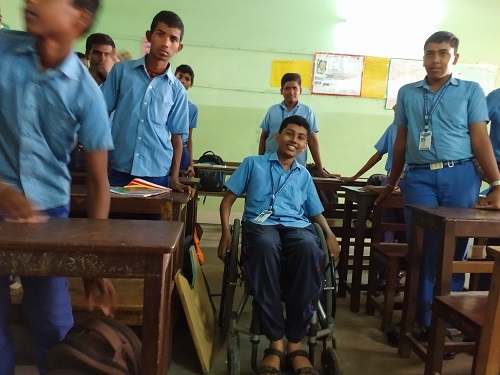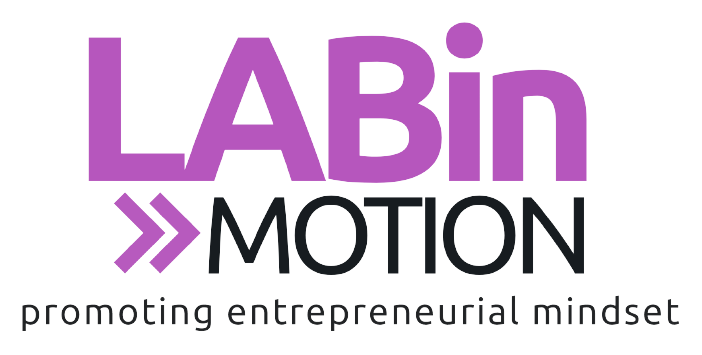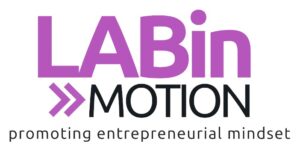When Jayakumar, a boy paralysed from neck down, started using NeoFly, a wheelchair designed for individual customisation, he could sit erect and move independently in his school and his happiness knew no bounds.
“Very comfortable on the NeoFly, my sitting posture is erect. Will take it to the beach soon,” Jayakumar wrote in his feedback to its makers, Neomotion, a Chennai-based startup developing high quality customised wheelchairs and modified scooters.

Founded in May 2016 by Sujatha Srinivasan, a Professor at IIT Madras, and Swostik Sourav Dash, alumnus of IIT Madras, with a vision to enhance the quality of life of people with disabilities and the elderly in a transformative way, NeoMotion has so far delivered over 360 NeoFly wheelchairs across 25 Indian states to people diagnosed with locomotive disability, spinal cord injuries, polio, cerebral palsy, amputations, muscular dystrophy and old age in the age group of 15-70 plus years.
Srinivasan has been working in assistive device development since 1992, in industry and as an academic researcher. She heads the TTK Centre for Rehabilitation Research and Design Development (R2D2) at IIT Madras. Dash, the CEO of Neomotion, is a passionate product designer. Prior to co-founding NeoMotion, he worked as project manager at an FMCG firm and as project manager for ARISE Standing Wheelchair.
NeoMotion’s journey began in April 2015 with IIT Madras’ Standing Wheelchair project. The team travelled across the country for testing and interacted with over 200 wheelchair users and found that most wheelchair users are confined to their house’s four walls with poor health, no employment and no social engagement.
The two major problems that caught their attention were lack of awareness and availability of a good wheelchair and challenges in outdoor mobility.
“One-size-fits-all wheelchairs, widely in use, offer incorrect posture and are difficult to propel. There is a lack of awareness of the extent of damage that a bad wheelchair can inflict on health even in a three-month period, leave alone life time users,” says Dash.
“Also conventional wheelchairs are unusable outdoors. For outdoor mobility, people use alternates as tri-cycles and tri-scooters but these involve transfers from one device to another making the person always dependent. Consequently, many wheelchair users stay within their home,” he adds.
NeoMotion seeks to change this.
With a focus on lifestyle altering solutions for wheelchair users, NeoMotion aims to empower them with high-quality devices that set the standard and help engender a shift from plethora of sub-optimal products that aggravate health issues and significantly restrict the scope of a meaningful, active and productive life of dignity.
NEOMOTION PRODUCTS
NeoMotion offers two products and a few accessories.
NeoFly is a wheelchair designed for individual customisation, correct posture, energy conservation, and compactness to enhance accessibility. “These health-enhancing features elude 95 per cent-plus users now,” Dash says.
NeoBolt is a motor-powered clip-on which converts NeoFly into a safe, roadworthy vehicle. It eliminates the need to transfer into other vehicles and can be independently attached by the user within seconds. It has a maximum speed of 25 kmph and travels up to 30 km/charge. NeoBolt can also be safely used on uneven terrain.
A NeoFly customized manual wheelchair cost starts from Rs 49,000 inclusive taxes and pan-India doorstep delivery. NeoBolt and NeoFly combo cost starts from Rs 1,18,000 inclusive of taxes and doorstep delivery.
To understand the user’s health and lifestyle and arrive at the 18 customizations that would be ideal for the user, NeoMotion uses remote user assessment platform NeoFit.
So how does NeoFit work? “We collect users’ measurements through a guided video and their photographs to validate the measurements provided and to assess any physical deformities. We understand about their health and lifestyle though a structured questionnaire administered over a 30-minute phone call. Then we combine these three data points (measurements, photographs and structured questionnaire response) through NeoFit platform and generate a report – what one can call a “wheelchair prescription” with the recommended values for the 18 customisations,” Dash explains.
This report is then shared with the users. Once they confirm that they have understood and are okay with the recommended settings, NeoMotion proceeds with assembling their wheelchair.
“NeoFit has been used while delivering the 350 units and its performance has been great,” adds Dash.
NeoMotion also provides support for making changes in wheelchair configuration or for replacing damaged parts or for guidance on usage remotely through its remote after sales service platform NeoCare. “NeoFit and NeoCare make quality service available across geographies (dependent on availability of courier services and internet connectivity). Products with comparable features are available only in the global market and are three times as expensive,” says Dash.
“NeoMotion has delivered seven NeoBolt units, and have 50+ pre-bookings for the same which will be delivered from March 2021 onwards,” he adds.
Dash firmly believes that an active lifestyle and a better attitude towards life will potentially bring wheelchair users to the mainstream of society. With increased participation, the macro socio-economic impact can be game-changing. “With usage of NeoMotion products, users will have good health, increased accessibility and wheelchair use will be enjoyable. Wheelchair users can venture out more, explore the world independently without fear and engage in education and employment,” he says.
ROADBLOCKS
There are 180 parts in a NeoFly wheelchair. Setting up the supply chain was a challenging task for NeoMotion team.
Another major challenge they face is the knowledge gap amongst users regarding customised and personalised wheelchair and its benefits. “Users consider a wheelchair as a taboo and not as an enabler, leading to deterioration of health conditions. Many users neglect good quality rehabilitation and end up living unskilled with an assistive device which is not comfortable for them. To make them understand that there is more to a wheelchair, and that it would come at a price was a difficult threshold to overcome,” says Dash.
In India, wheelchairs are predominantly a donation market. People want to donate as many wheelchairs as possible and the focus thus is on quantity and not quality. “As a result, many users end up with low quality wheelchairs which are inhibitors than enablers,” he adds.
Dash feels assistive devices should be a fundamental right. They should be considered as an investment which would lead to empowerment, education and employment. “Hence, loans for good quality assistive devices should be readily available so that people don’t end up in the vicious cycle of a donated wheelchair. However, accessible financing options are lacking in India,” he adds.
FUTURE PLANS
Citing the underdeveloped assistive technology space and ecosystem, Dash says: “There is much need for more and more organisations to work in this space so that we can enable people with disability and elderly to live life to the fullest.”
NeoMotion aims to positively impact the lives of 100,000 users every year by 2025. This will be achieved through product portfolio expansion and geographic expansion.
“We want to reach out to every such Jayakumar in India,” he says.





